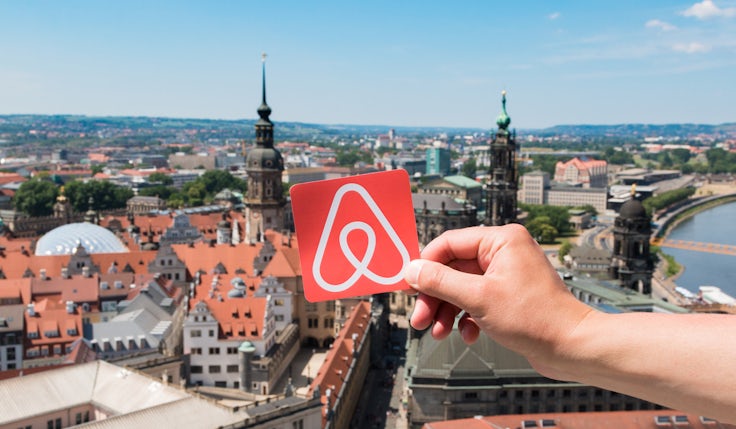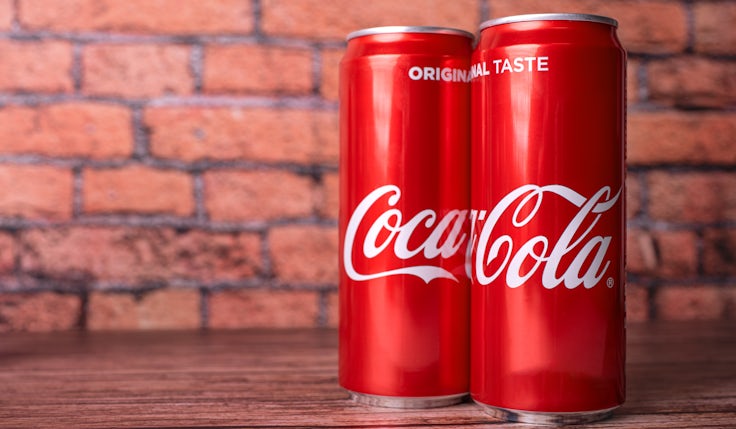The regalia of being a national treasure weighs John Lewis down
Far from being beneficial, the retailer’s perceived status a British institution limits its ambition – just look at what Britishness stands for today.

John Lewis Partnership awarded its advertising account to Saatchi & Saatchi earlier this month and it seemed almost like another coronation. First to capture the solemnity of the occasion was Saatchi chief creative officer Franki Goodwin, with her observation that “these brands” – John Lewis and grocery retailer Waitrose – “are important to the fabric of our nation”.
Swift to endorse that sentiment was former Thinkbox chair Tess Alps, who tweeted some congratulatory counsel to the Saatchi leadership: “Look after our national treasure please.” Meanwhile, retail guru Mary Portas had already set the tone with her contention, in an open letter to John Lewis chair Sharon White, that what we are talking about here is no less than “part of our collective cultural identity”.
There seems to be some ingrained understanding among the UK’s populace that John Lewis and Waitrose represent the very pinnacle of what it means to be British. That is not just a heavy burden for purveyors of furnishings and fish fingers to carry, it also constitutes a spectacularly low bar.
If John Lewis is content merely to reflect the reality of today’s Britain, then we can expect no more than what ensues from its defining characteristic: a chronic lack of ambition.
Once ‘thoroughly British’ is the best you can say about a brand, you know that decline is in the offing.
The UK has somehow contrived to cram three bank holidays into a single month, much to the bemusement of my much harder-working US clients. Not that some of our citizens will notice the difference, since one in five working-age people in the UK are economically inactive, despite over one million jobs remaining unfilled. Britain isn’t working, to paraphrase a famous Saatchi line, but this time it’s because it can’t be bothered. The outcome is reflected in 2023 first quarter GDP growth of just 0.1% and productivity declining by 0.6% from an already low base.
Given that backdrop, the trap that John Lewis should seek to avoid is to become one of those entities that gets stuck with the epithet ‘ours’. Because it is not a happy list to be on. Rival retailer M&S embodied the sentiment for much of the last century before suffering a paralysis of imagination in this one. The BBC loves to place itself at what it sees as the heart of British culture but is shunned by its youngest citizens, who bypass the licence fee and watch other stuff online. Then you have ‘our’ sad and sorry NHS. And ‘our’ King.
It was frequently remarked after the festivities of Coronation Day on 6 May that no-one does pomp and pageantry like the British. No, they don’t, but then, why would they want to? No-one copies the NHS model, either, because it has long since struggled under the weight of its own contradictions. There are few takers for a fully taxpayer-funded state broadcaster. Come to that, the John Lewis partnership business model – another kind of ‘ours’ – is rarely copied, since it horribly constrains room for fiscal manoeuvre.
The envy of no-one
These constructs are ‘ours’ both in the sense that they are peculiarly, quaintly British, and that nowhere else in the world wishes to emulate them.
Not that we’re too keen on them ourselves, when it comes to putting our money down – as John Lewis’s latest full-year loss of £234m attests. But in any case, a default to domestic provenance is never a forward-looking stance for big brands. Better to set sights higher and go head-to-head with the global best.
For an inspiring example of that, look at clothes-to-furnishings retailer H&M. The brand happens to be Swedish, but it wears that provenance lightly and certainly doesn’t use it as its sole frame of reference. Instead, it leans out into the world, with a mantra to offer ‘great design sustainably’, and competes profitably on a global stage. The brand is present in 76 markets, along with its fizzing sub-brands Arket, & Other Stories and H&M Home. The John Lewis retail footprint, meanwhile, is confined to these shores and in 2020 it ceased even delivering abroad – to “focus on our local UK customers”, according to a spokesperson.
Therein lies the error – the notion that you somehow satisfy even local customers better when you limit your horizons to the norms of a single global neighbourhood. It’s like an athlete deciding whether they want to be the fastest in their own country or the fastest in the world. The surest way to achieve the former is to set your sights on the latter.
That brings us right back to another famous Saatchi line. Four decades ago, the agency blew us all away with one of the most audacious positionings and slogans ever: ‘The world’s favourite airline’. Not Britain’s. The world’s. It showed that even a brand with British in its name need not frame its sights or its ambitions with parochial meanness.
For a while the airline was good enough for us all to go along with it, and even when it strained the bounds of credibility you got the sense that it gave everyone at the airline something to live up to.
Now that BA has suffered its own decline, it is content to lower its sights once again and in its latest advertising claims to be no more than ‘A British original’. The slogan might just as well say ‘Don’t expect too much’.
Once ‘thoroughly British’ is the best you can say about a brand, you know that decline is in the offing. What’s so special about Britain? The national treasure is tarnished, the cultural fabric is holed, the collective identity is, aside from anything else, not remotely collective.
John Lewis chose Saatchi for its “energy and fizz”. It will take that and more to reinvigorate brands that increasingly feel anything but energised. What kind of work will the newly crowned agency produce? There is speculation that it will be rooted in some kind of notion of nationhood. That wouldn’t be my choice but then it’s not my brand. If that’s the direction the marketer and agency team wish to take things, well, the best of British with that.







